- Home
- Douglas Niles
Feathered Dragon mt-3 Page 3
Feathered Dragon mt-3 Read online
Page 3
“And see? See her cloak,” said a round-faced mother, looking at Erixitl’s garment with an expression approaching rapture. “The sign! Soon Qotal will be here, and then all will be well again!”
Abruptly Erix’s throat tightened and she turned away, led by Halloran farther into the camp.
A small stand of stunted cedars, a rare grove in the House of Tezca, proved that this vale had once retained some minimal moisture, enough to grow these hardy desert trees. Now the grove, newly green and lush from the suddenly increased water supply, sheltered a group of people from the growing night. Here gathered those who led the procession and protected it.
A fractious group, formed by disaster and held together by necessity, they nevertheless strived for cooperation, for they knew this was the only way they would survive. Their numbers included Eagle and Jaguar Warriors, priests of Qotal, Azul, and Calor, and even several steel-helmed officers of the Golden Legion.
As Erixitl approached, her cloak puffed outward from her shoulders and colors seemed to rise in the silky plume. Like an aura, bright hues surrounded the woman, and all the others in the group stood back a small distance from her. The blessing of Qotal lay upon her, and it was to Erixitl of Palul that the people turned for leadership, hope, and comfort.
She looked at them now, despairing. What did she know about leading people? Why did they look to her? Because, she knew, of the cloak she wore-the brilliant, scintillating Cloak-of-One-Plume that signified the blessing of Qotal, the Plumed Serpent. Erixitl silently cursed the blessing of that god, for this was her feeling now toward all gods. What kind of deities could wrack their people with a cataclysm like the Night of Wailing?
“Greetings, Gultec,” she said quietly to a dark, smooth-chinned warrior wearing the spotted tunic of a Jaguar Knight. Gultec was the warrior who had told them of food in the desert on the morning after the destruction of Nexal, thus insuring their survival.
He, together with Halloran, formed Erixitl’s strength and her shield on this hellish journey. Gultec had come to represent to her the same kind of friendship, she realized with a twinge of pain, as had the Eagle Knight, Lord Poshtli. He had aided Halloran and her on their desperate attempt to avert the catastrophe.
Now, as she despaired of leading these people, her heart ached for Poshtli’ The great lord and warrior had been a true friend to her and Halloran, and he had been with them atop the volcano at its moment of eruption. Though her cloak had protected her husband and herself, there had been no immortal shield for Poshtli. Rationally, as Halloran had tenderly tried to convince her, there could be no hope that Poshtli had survived. Yet still somehow, in her heart, she believed that he had to be alive.
White-robed priests of Qotal who had escaped the chaos in Nexal stood anxiously behind the pair, eager to counsel Erix. The Plumed Serpent would now return, for all the prophecies had been fulfilled, and they now preached a newly vitalized faith. The preaching was done by the younger priests, those who had not yet taken their vows of silence. But only the younger priests had escaped Qotal. The patriarch, Colon, was assumed to have perished in the chaos.
A warrior sprinted toward them from his guard post at the edge of the camp. He reached the group among the cedars and threw himself flat upon the sand before Erixitl.
“My lady, the foreigners return!”
Moments later, a trio of horses appeared behind him, cantering through the encampment. One, the leader, dismounted, while the other two held back some distance from the proud figure of Erixitl.
“What have you learned. General?” she asked, as the black-bearded rider bowed before her.
“The monsters move out from Nexal,” Cordell reported. “My scouts have observed long columns of ores, commanded by ogres and flanked by trolls, moving into the desert. They come southward, following our trail.”
The commander spoke in the common tongue of the
Realms but Halloran smoothly translated his speech into Nexalan. A rumble of concern rippled through the gathering until Erixitl raised her hand.
“How far away?” she asked.
“Still four or five days,” replied the captain-general. “But they march swiftly. Their columns extend to the east and west, barring our flight in those directions.”
“Stand and fight them here, then!” growled Totoq, a grizzled Jaguar Knight. A chorus of assenting voices joined him.
“Wait.” Gultec, also dressed in the spotted skin of a veteran Jaguar Knight, lifted his hand. Though not a man of the Nexala, his steadiness on the long flight had earned him the respect of the others.
“What is it? Have we not waited too much already?” demanded Kilti, a young Eagle Warrior.
“Gultec counsels wisdom,” Halloran added. “We have already exhausted most of the food here. True, we could establish a strong defense with a four-day delay, but what will we eat before and after the battle?”
“We must move south,” Erix stated with finality.
“It is the will of Qotal,” added Caknol, one of the white-robed priests of the Plumed God.
Erixitl, still surrounded by the glowing cloak, surprised them all by whirling on the priest.
“The will of Qotal?” she spat. “Why should we take note of his will now, after his complete abandonment of us, his people? He sent his signs-the couatl, who died bravely in the battle with the Ancient Ones, and the Cloak-of-One-Plume, which covers my shoulders, but for what purpose? And even the Summer Ice, which enabled us to flee Nexal at the moment of the city’s destruction, has but prolonged our misery!”
“But his mercy-“ the cleric stammered, surprised by the woman’s anger.
“His mercy!” Erixitl practically sneered the words. “What kind of mercy is this?” She gestured to the ragged collection humanity around them, angrily turning her back on the
Then, with no warning, she collapsed onto the ground.
Lava seethed in great seas, surging against rocky shores with hellish force, crashing upward to coat scorched boulders with fresh layers of molten stone. Cavern roofs pressed overhead, rocked by convulsions, reflecting back the infernal heat. Massive chunks of rock broke from the ceilings of vast caverns, tumbling into the flaming, blood-red liquid and shattering convulsively from the pressure and the heat and the violence.
Everywhere this world lay wracked by flame and fire, yet overhung by leaden darkness as well, for it was a world beneath the earth, where the torturous wracking of the underdark emerged as mere tremors on the surface.
It was a world without life, without sun or water or sky. The only illumination came from the crackling, seething lava, hissing upward with crimson explosions of flame. Each burst of violence consumed precious oxygen, and the air in the huge caves hung heavy and thick with poisonous vapors and choking smoke.
It was through this world that a file of repulsive, spider like beasts made its way. Led by the one of purest white, these, the several dozen corrupted monsters of the spider goddess Lolth, passed slowly and carefully along the seething shores, in search of escape from the wrath of their angry god.
The driders were beasts of hideous aspect and foul, unnatural desires. Each walked upon eight spider legs, covered with coarse fur and bristling with venomous spines. Their bodies, bloated and distended like the abdomens of spiders, swung beneath the legs.
Only their torsos and heads showed signs of their former existence. Sleek black skin covered wretched faces that had once been proud and handsome. Long dexterous fingers held black-bladed swords or long, dark bows.
But these features, formerly noble if cruel, were now scarred by flame and distorted by corruption. Great patches of skin had burned from them, and their pale eyes
no longer held the gleam of power. Instead, they stared in terror at the hellfires around them, wildly, desperately seeking escape. Even the one who led them, the one that was pale white where all the others were dark, thought of nothing other than refuge.
Escape! For now, release from this nightmare mattered more than anything. The
vengeance of Lolth had scarred and terrified them, and they scuttled, as mortal creatures will, in search of refuge against the further wrath of their god. They could not know that Lolth was finished with her vengeance and now looked toward further, evil employment of her servants.
Yet the nature of the driders was too hateful, too vile, to long remain content with an existence of flight. Here again the pale one showed her leadership, for she looked upward and shook a scarred, raw fist at the fires looming overhead. She cursed the name of her god, of all the gods, and hatred grew in her like a poisonous flame.
Ultimately her thoughts, and soon those of her kin as well, began to turn toward vengeance.
Small-mouthed caves ringed the base of the narrow box canyon. Above these dwellings, others-structures of adobe, with round doors and tiny, latticed windows-extended across the face of the yellow, wind-bitten cliff face itself. The latter perched precariously, reachable only by ladders and forming an easily defensible barrier against attack from below.
Yet never in its three centuries of existence had Sunhome known attackers. Indeed, the desert dwarf village suffered no threats other than the implacable sun and parched air that provided security even as they challenged its residents to survive.
But now Luskag wondered if it were indeed impregnable. He stood at the mouth of the canyon, greeting the headmen and chiefs of other desert dwarf communities as they arrived at Sunhome for the conference, and he no longer thought of his village as an island immune to the storms of war.
“It’s a long trek you call us to,” grunted one named Pullog, whose village lay far to the south, at the fringe of the House of Tezca. As Sunhome was the northernmost of the dwarven settlements, Pullog’s trek had indeed been arduous.
“But no less important for that,” answered Luskag. “I am glad your journey passed safely, my cousin. Come, sup with us, and then the council will begin.”
The other chiefs, a full score in all, had already arrived. They gathered in Luskag’s cave, served by his daughters and warmed by the light of a mesquite fire. They talked idly during a meal of snake meat, cactus, and water, but the conversation revealed that all of them had observed the changes that had come over the desert during the past summer and the current autumn. Finally they concluded the repast, and Pullog, always impatient, turned to Luskag.
“Now, cousin, tell us why your children come to our villages, out of breath and wild-eyed, to compel us to leave our wives and make the journey to Sunhome? Is it to tell us that there is water in the desert? Or food?”
Luskag chuckled wryly, but then his expression turned grim. In answer, he reached beneath a blanket and tossed forth a large white object. The skull of the ogre rolled forward to rest before Pullog, its eyeless sockets gaping upward at the southern chief.
“What in the name of the gods is that?” demanded Pullog, blanching beneath his sunburned skin.
“A sign,” Luskag answered, “lb show that there are more changes in Maztica than a newly fertile desert.” Briefly he told the tale of the ogre’s size and ferocity. “As 1 fought with it, a killing frenzy consumed me. The abominable creature awakened some deep and abiding hatred within me.” Luskag shuddered at the memory of that uncontrollable rage, and the other dwarves looked from the monstrous skull to the small, sturdy dwarf, with something resembling awe.
“Now I have sent my sons northward,” he explained. “They have learned that Nexal is full of such beasts-or, to
be more accurate, was full of such beasts. Now they have formed armies and marched into the desert.”
He told them of the humans, a hundred thousand or more of them, fleeing southward, making their way from one water hole to the next, fleeing the monstrous legions.
“It is clear that our world faces a serious challenge’ observed Traj, chief of the village nearest Sunhome. “Can we not fall back to our villages and wait for the threat to pass?”
“This is why I have called the council,” replied Luskag. “It is true that since the Rockfire sundered the underdark, separating us from the known world, we have dwelled in peaceful isolation. We have known no enemies, and the land has given us what we need to live.”
“Aye,” grunted several chiefs, for the history of their people was only a few centuries old, and most had heard the tale from older dwarves who had actually experienced the great war with the drow that had led to the Rockfire. Though that schism, terrifying in its magnitude and violence, had forever separated the desert dwarves from their kin in other parts of the Realms, it had also eliminated their most hated enemies, the drow. Through the centuries, the people of Luskag’s tribe had come to accept, if not praise, this exchange.
“And good years we have had, too,” observed Harl, the most venerable of the chiefs. Though his hair and beard were snow-white, the grizzled dwarf still marched proudly at the head of his tribesmen.
“So they should remain,” Pullog added, “lest we act foolishly and, in our rashness, ruin that which is our blessing. Rashness, such as the idea that we can make war on such monsters! Far better to remain in our villages, secure and hidden, until the scourge passes.”
“Would the years pass in peace, so be it,” Luskag spoke forcefully, and all the dwarves looked to him. “But it will not be so.”
He paused, mildly relieved that none argued with his point. In a moment, he continued. “You all know of the City of the Gods-greater, even, than splendid Nexal. Now it is too dry even to support a family of desert dwarves, yet still it lies in the desert and continues to taunt us with its mysteries and wonders.”
“Aye,” Traj assented readily. “Oft I have journeyed to its rim, only to sit and gaze in wonder on the pyramid that rises from the desert, lifeless.”
“The gods have given us a blessing, even in that desolate place.” Luskag reached behind himself to pull forth a heavy lump of sandstone. With a grunt, he dropped it to the stone floor before him. Then he slowly removed his axe, so that the others could clearly see its gleaming stone blade, shiny black and as smooth as a mirror. Tufts of red, yellow, and green feathers encircled the haft just below the head.
“I have discovered obsidian in the city of the gods-great blocks of stone that we can craft into weapons.” He raised the axe and brought it down sharply on the block of sandstone. The rock burst apart, showering the dwarves with shards.
The blade, however, stuck clean and unshattered into a newly made crack across the floor.
“It seems that now our time of sanctuary draws to a close. The desert dwarves are once again drawn into the conflicts of the world, and we must be prepared to face this threat together.”
“Do not be hasty,” countered Pullog. “True, your demonstration of weaponry is impressive. Perhaps, armed thus, we could field a strong force. But how do we face this threat?”
“It is for that reason that I have called you here,” answered Luskag. “I ask, nay beg, that you all accompany me in the morning.
“I propose that we climb the great mountain and seek the wisdom of the Sunstone.”
“Don’t try to get up. Just rest.” Halloran tried to keep his voice level, but his concern for his wife emerged as taut fear. Erixitl lay on the soft ground beneath a canopy of cedars. The others, out of respect and worry, gave them space
to be alone. Around them, dawn had given way to full and already scorching daylight
‘I’m all right,” she replied, smiling gently. She reached for him, her fingers feeling cold and weak to Hal.
He clenched her hand as his eyes instinctively dropped to her belly. A slight swelling, unnoticeable to any but him, remained the only outward sign of the life that developed there. When he looked back to her face, his fear for that life as well as hers tightened his voice even further.
“We’ll stay here for a few days. Then, when we leave, you’ll ride a horse. Nothing but harm can come from these long marches, and I will not let that happen!”
Erixitl sighed, squeezing her husband’s hand, for this was an old argument. “I’
ll be fine. You cant expect me to ride, when old men and women, even little children, all walk on their own feet.”
Among the throng of refugees were some fifteen horses, all that were left of the forty brought to Maztica by the Golden Legion. The others had almost certainly perished in battle or in the convulsions of the Night of Wailing. If a few had escaped to freedom, which was possible, they were of no use to them now.
“But…” Hal groped for new reasons. “You’re too important-to everyone! The people look to you for leadership, for comfort!”
“Why?” Erix’s tone became sharp. “Because I wear the Cloak-of-One-Plume?” She sat up abruptly and gestured toward the colorful mantle hanging from a tree branch beside her. “I’ll gladly give it to anyone who wants it’”
Halloran sat back, deeply disturbed. He wanted to offer comfort, but Erixitl’s tension held him at bay. Finally she relaxed slightly, turning back to him. He could see that she was thinking about something else,
“I hope my father’s all right,” she said softly. “I’m afraid for him, though. Palul is so close to Nexal, and he’s so helpless. If the creatures of the Viperhand come there, he wouldn’t have a chance!”
Halloran thought of the blind featherworker, Lotil. His wife’s father had seemed to be a very wise man, very keenin his understanding of the world despite his lack of sight. He worked the magic of feathers-pluma-and his gifts were with them now, in the amulet that Erix wore and in his own wristbands, jokingly termed Erixitl’s “dowry” by the old man.
The powers of Erixitl’s amulet had offered them protection against a variety of threats. Conversely, the bands that he wore had increased the strength of his arms to that of ten men when Hal’s energies focused on battle. Surely a man with such potent skills could save himself from the chaos sweeping the land. At least, so Hal hoped.

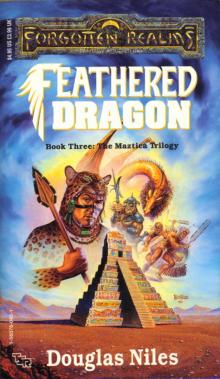 Feathered Dragon mt-3
Feathered Dragon mt-3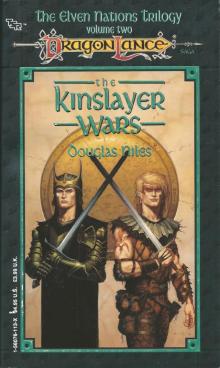 The Kinslayer Wars
The Kinslayer Wars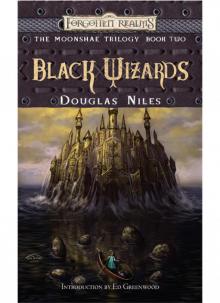 Black Wizards
Black Wizards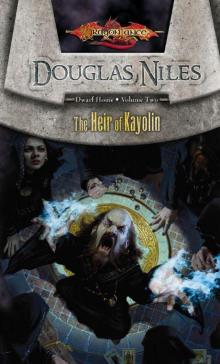 The Heir of Kayolin dh-2
The Heir of Kayolin dh-2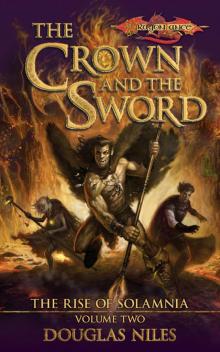 The Crown and the Sword tros-2
The Crown and the Sword tros-2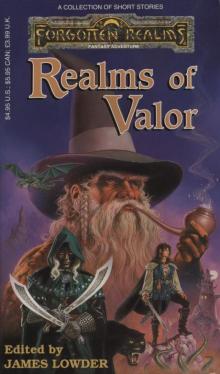 Realms of Valor a-1
Realms of Valor a-1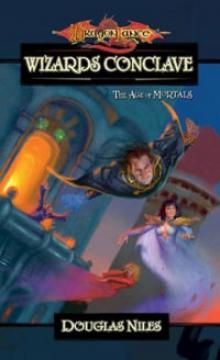 Wizards Conclave aom-5
Wizards Conclave aom-5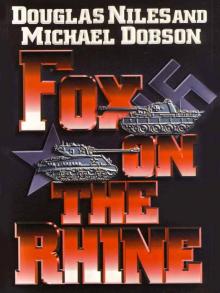 Fox On The Rhine
Fox On The Rhine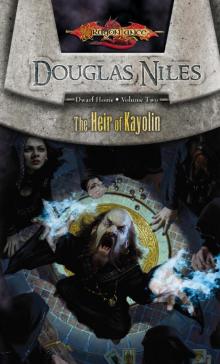 The Heir of Kayolin
The Heir of Kayolin Fox at the Front (Fox on the Rhine)
Fox at the Front (Fox on the Rhine)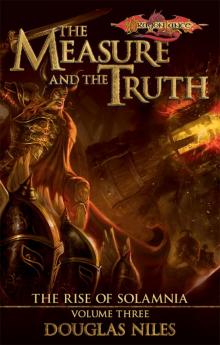 Measure and the Truth tros-3
Measure and the Truth tros-3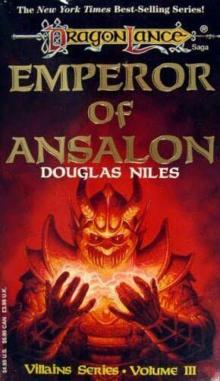 Emperor of Ansalon (d-3)
Emperor of Ansalon (d-3)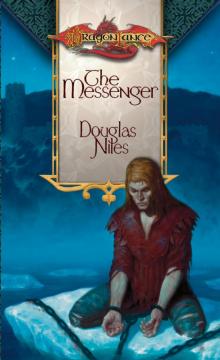 The Messenger it-1
The Messenger it-1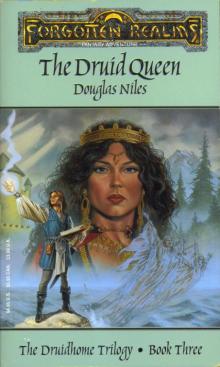 The Druid Queen tdt-3
The Druid Queen tdt-3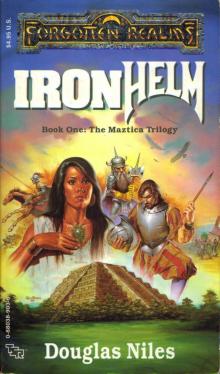 Ironhelm mt-1
Ironhelm mt-1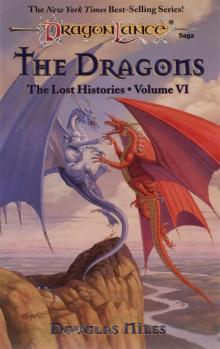 The Dragons lh-6
The Dragons lh-6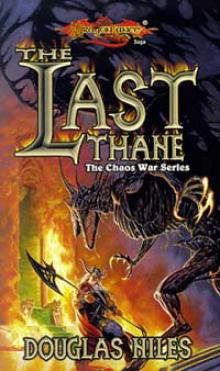 The Last Thane cw-1
The Last Thane cw-1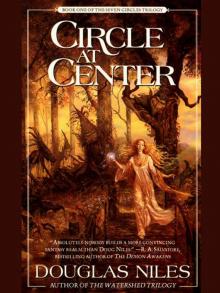 Circle at center sc-1
Circle at center sc-1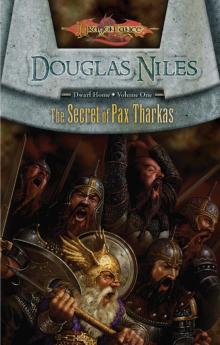 Secret of Pax Tharkas dh-1
Secret of Pax Tharkas dh-1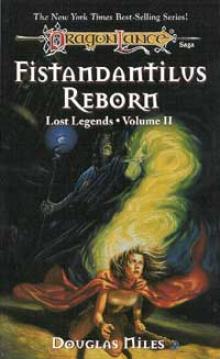 Fistanadantilus Reborn ll-2
Fistanadantilus Reborn ll-2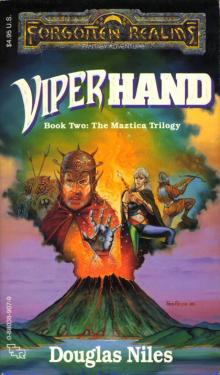 Viperhand mt-2
Viperhand mt-2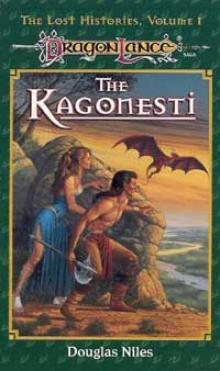 Kagonesti lh-1
Kagonesti lh-1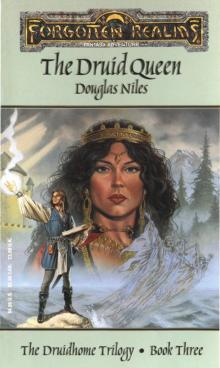 The Druid Queen
The Druid Queen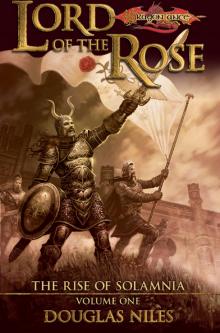 Lord of the Rose tros-1
Lord of the Rose tros-1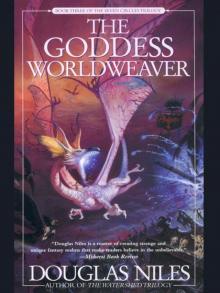 Goddess Worldweaver sc-3
Goddess Worldweaver sc-3 Eyeball to Eyeball (Final Failure)
Eyeball to Eyeball (Final Failure)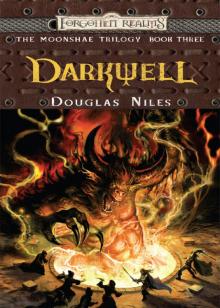 Darkwell
Darkwell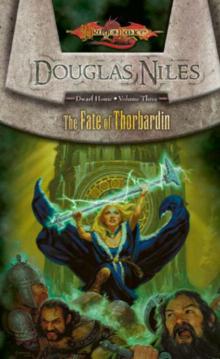 Fate of Thorbardin dh-3
Fate of Thorbardin dh-3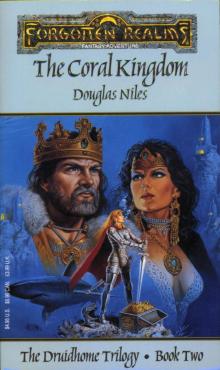 The Coral Kingdom tdt-2
The Coral Kingdom tdt-2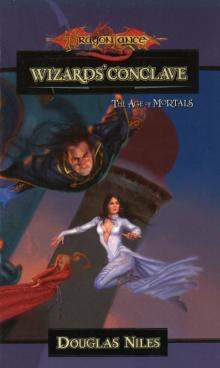 Wizard's Conclave
Wizard's Conclave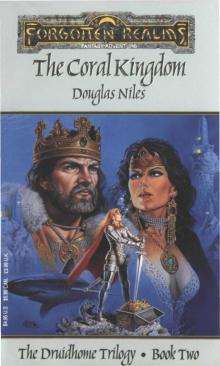 The Coral Kingdom
The Coral Kingdom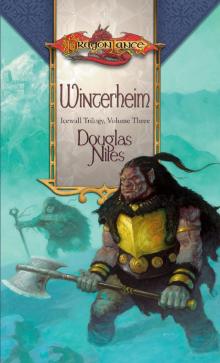 Winterheim it-3
Winterheim it-3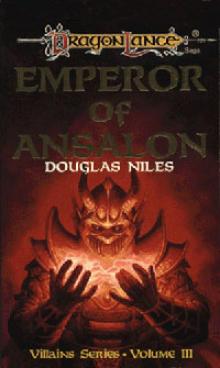 Emperor of Ansalon v-3
Emperor of Ansalon v-3 MacArthur's War: A Novel of the Invasion of Japan
MacArthur's War: A Novel of the Invasion of Japan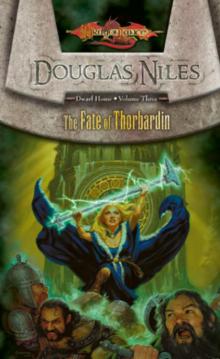 The Fate of Thorbardin
The Fate of Thorbardin The Rod of Seven Parts
The Rod of Seven Parts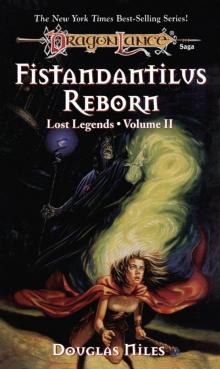 Fistandantilus Reborn
Fistandantilus Reborn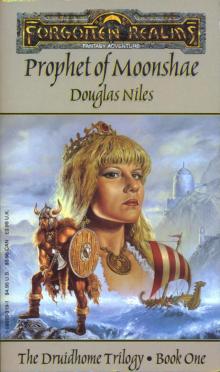 Prophet of Moonshae tdt-1
Prophet of Moonshae tdt-1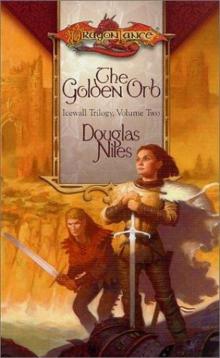 The Golden Orb i-2
The Golden Orb i-2